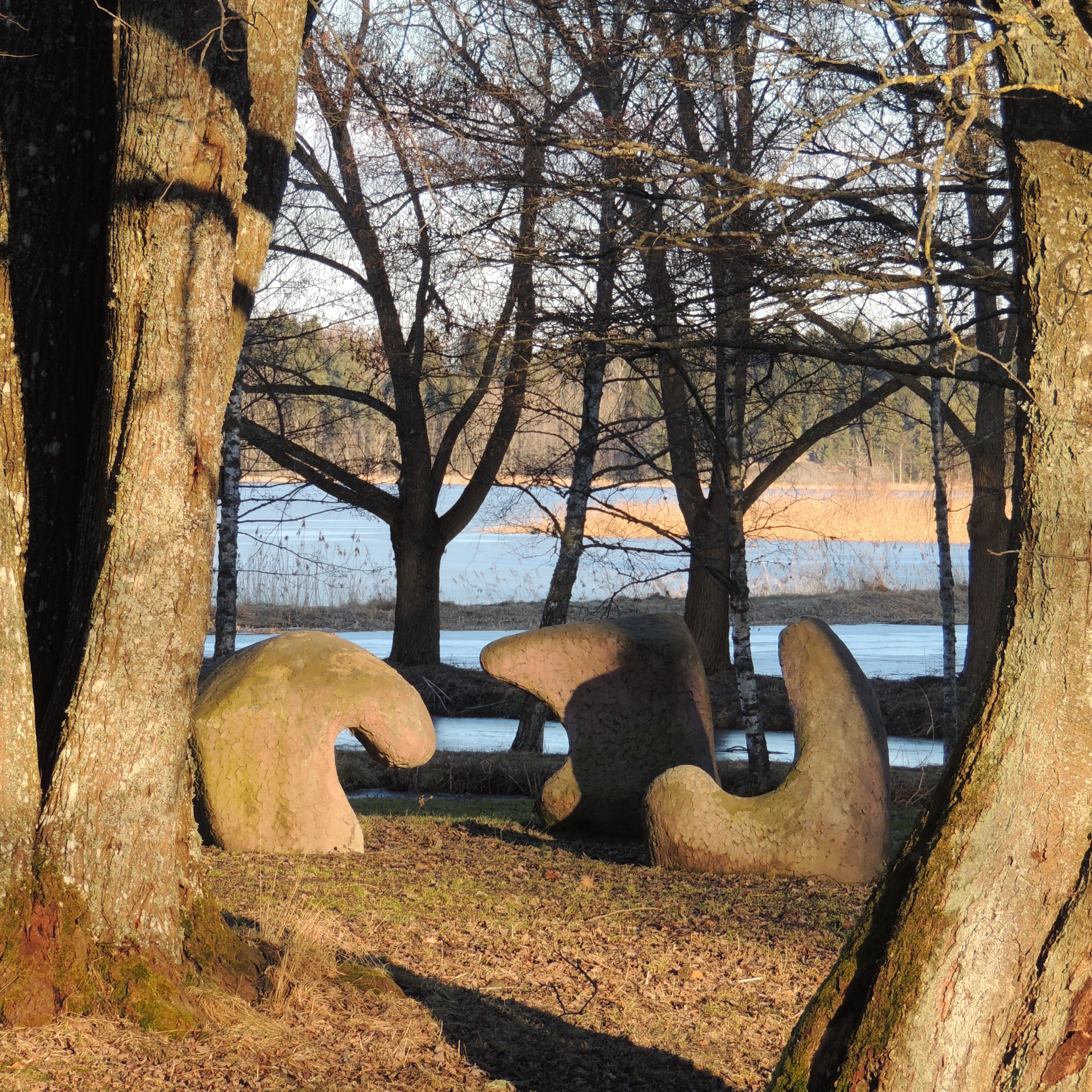The Gardener’s Practical Knowledge
The importance of time, reflection and knowledge of a place to become a site builder
DOI:
https://doi.org/10.7577/formakademisk.5426Emneord (Nøkkelord):
Genius loci, practical knowledge, place-making, garden managementSammendrag
With this article, I want to raise questions about the gardener’s practical knowledge in order to create greater awareness in educational contexts and working life of the importance and application of what it means to be and work as a gardener. Practical knowledge takes time to develop and requires experience and conscious reflection. It also requires knowledge of the particular site you are working with, which in principle is always complex, as it involves everything from natural habitats to human expressions, such as history. To understand what practical knowledge is, I drew on situations from my working life and discuss these with references that highlight the importance of involving different forms of knowledge, phenomenology and hermeneutics. I used the concept of genius loci to formulate the meaning of places and posthumanist thoughts on the relationship between humans and nature. My conclusion is that experience, reflection and knowledge of a place are central to building sites, a task in which the gardener is highly involved. I conclude with a number of questions about how to work with these aspects of the profession in education and working life.
Referanser
Blick, A. (2011). Jakten på genius loci, att förstå och finna platsen själ [The search for genius loci – to understand and find the spirit of place]. [Självständigt arbete vid LTJ-fakulteten SLU, Kandidatexamensarbete, 15p [Bachelor's degree, 15 credits]]. Epsilon Archive. https://stud.epsilon.slu.se/2730/1/blick_a_110603.pdf
Bornemark, J. (2020). Horisonten finns alltid kvar. Om det bortglömda omdömet [The horizon is always there. About the forgotten review]. Volante.
sá Cavalcante Schuback, M. (2006). Lovtal till intet: essäer om filosofisk hermeneutic [Eulogies to Nothing: Essays on Philosophical Hermeneutics]. Glänta Produktion.
Gadamer, H.-G. (1997). Sanning och metod i urval [Truth and method in selection]. Daidalos.
Gustavsson, B. (2002). Vad är kunskap? En diskussion om praktisk och teoretisk kunskap [What is knowledge? A discussion of practical and theoretical knowledge]. Skolverket. https://www.skolverket.se/download/18.6bfaca41169863e6a654b41/1553957957801/pdf1108.pdf
Heidegger, M. (1974). Teknikens väsen och andra uppsatser [The Essence of Technology and Other Essays.]. Rabén & Sjögren.
Malm, A. (2020). The Progress of this Storm. Nature and Society in a Warming World. Verso.
Molander, B. (1996). Kunskap i handling [Knowledge in action]. Daidalos.
Nilsson, C. (2014). Fronesis och den mänskliga tillvaron. En läsning av Bok VI i Aristoteles Nikomachiska etik. In J. Bornemark and F. Svenaeus. Vad är praktisk kunskap [What is practical knowledge]. Södertörns högskola.
Norberg-Schultz, C. (1980). Genius loci: towards a phenomenology of architecture. Rizzoli International Publications.
Pihlgren, P. (2021). Gränstrakter: En essä om bryn, platsbyggande och trädgårdsmästarens praktiska kunskap [Boundaries: An Essay on Brows, Site-Building, and the Practical Knowledge of the Gardener]. [Självständigt arbete på avancerad nivå (magisterexampen), 15 poäng/22,5 hp. Södertörns högskola, Institutionen för kultur och lärande, Centrum för praktisk kunskap.] DIVA. https://www.diva-portal.org/smash/get/diva2:1568518/FULLTEXT01.pdf
Schön, D. (2014). Att lära ut konstnärlighet genom reflektion-i-handling [Teaching artistry through reflection-in-action]. In J. Hjertström Lappalainen. Klassiska texter om praktisk kunskap (pp. 355-380). Södertörns högskola.
Svenaues, F. (2014). Vad är praktisk kunskap? En inledning till ämnet och boken [What is practical knowledge? An introduction to the subject and the book]. In J. Bornemark and F. Svenaeus, Vad är praktisk kunskap (pp. 11-34). Södertörns högskola.
Rae, G. (2014). Heidegger’s influence on posthumanism: The destruction of metaphysics, technology and the overcoming of anthropocentrism. History of the Human Sciences, 27(1), 51–69. http://doi.org/10.1177/0952695113500973
Westerlund, T., Groth, C., Almevik, G. (2022). Craft Sciences. University of Gothenburg. http://doi.org/10.21524/kriterium.40
Tamaddon, L. (2017). Den sjuka vårdcentralen. Om läkekonst som mostrånd och möjlighet i en Marknadsstyrd sjukvård [The sick care center. About the art of medicine as a spirit and opportunity in a market-driven healthcare system]. [Självständigt arbete på avancerad nivå (magisterexampen) 22,5 hp. Södertörn University, Centre for Studies in Practical Knowledge.] DIVA. https://www.diva-portal.org/smash/get/diva2:1133768/FULLTEXT01.pdf

Nedlastinger
Publisert
Hvordan referere
Utgave
Seksjon
Lisens
Opphavsrett 2023 Paula Pihlgren

Dette verket er lisensiert under Creative Commons Attribution-NoDerivatives 4.0 International License.
- Forfatteren(e) beholder sin opphavs- og kopieringsrett til eget manuskript, men gir tidsskriftet varig rett til 1) å fremføre manuskriptet for offentligheten i den opprinnelig publiserte digitale form, og 2) å registreres og siteres som første publisering av manuskriptet.
- Forfatteren må selv forvalte sine økonomiske kopieringsrettigheter overfor eventuell tredjepart.
- Tidsskriftet gir ingen økonomisk eller annen kompensasjon for innsendte bidrag, medmindre det er gjort særskilt avtale om dette med forfatteren(e).
- Tidsskriftet plikter å arkivere manuskriptet (inklusive metadata) i den opprinnelig publiserte digitale form, i minst ett dertil egnet åpent tilgjengelig langtidsarkiv for digitalt materiell, som for eksempel i de norske universitetenes institusjonsarkiv innen rammen av NORA-samarbeidet.
Verket vil bli publisert OpenAccess med en Creative Commons 4.0-lisens som tillater alle å lese, dele og tilpasse innholdet, også kommersielt, under lisensvilkårene:
Dette verket må tilskrives/ krediteres på riktig måte, en lenke må gis til CC-BY 4.0-lisensen, og endringer som er gjort må angis på en rimelig måte, men ikke på noen måte som antyder at lisensgiveren støtter deg eller din bruk.



